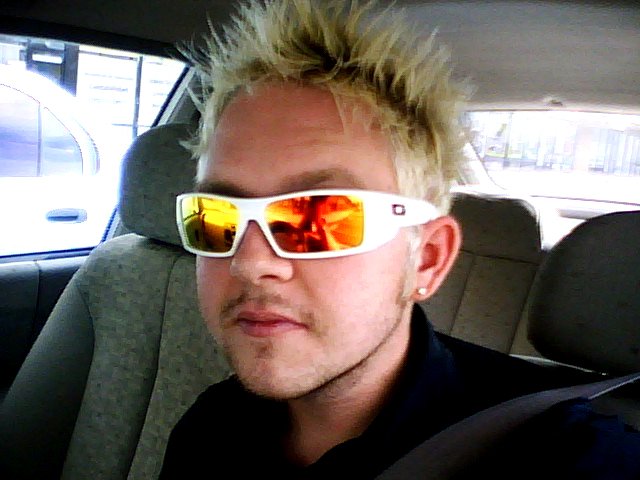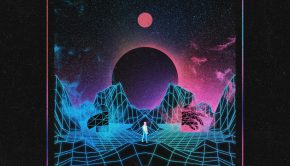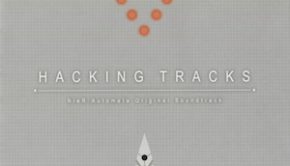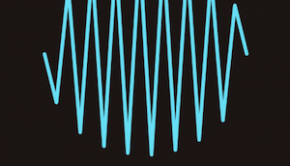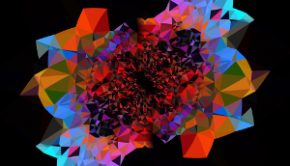Jordan Aguirre (aka bLiNd) Interview: Twelve Years of Remixes
Jordan Aguirre, better known as bLiNd, is one of the most successful artists to emerge from OverClocked ReMix‘s huge community. Inspired in equal measure by NES game composers and electronic dance music, the artist has established a signature style blending chiptune and trance influences. His style is on full display in his first solo album NESteryears, his indie score Dragons’ Odyssey, and the single Ghosts N’ Pills.
In this interview, Aguirre takes us through his musical experiences and talks to us about the influences, technology, and philosophies behind his music. Along the way, he discusses the highlights of his remixing career such as his takes on Castlevania, Final Fantasy XIII, and Pac-Man, as well as his works on Dragons’ Odyssey. He also announces that he’s working on two new game projects.
Interview Credits
Interview Subject: Jordan Aguirre (aka bLiNd)
Interviewer: Marc Chait, Chris Greening
Editor: Chris Greening
Coordination: Chris Greening
Interview Content
Marc: Jordan Aguirre, first let me say thank you for doing this interview. First of all, can you tell us more about your musical background, education, and early experiences?
Jordan Aguirre: No problem! Absolutely. Basically I started figuring out famous melodies on the piano before I could speak completely fluent English. Around the age of four or five, I figured out Back to the Future‘s melody on the piano and my parents put me in piano lessons for a good few years. I learned basic theory and how to play some classic pieces.
I didn’t want to keep going with the piano, but eventually at the age of 12 I started learning about synthesizers and sequencing, and there was no turning back from that point. I found out about music software in my mid-teens. Back then it was in its infancy so it was the first incarnations of Fruityloops, Acid Pro, Rebirth by Propellerheads, and so forth. The first thing I ever did was make beats in 1998 with a free program called Hammerhead Rhythm Station which is still available for free and for download today!
Marc: Your music tends to mash popular game soundtracks with electronic styles. Looking back, what are some of the records and artists that have inspired you from both game music and electronic music alike?
Jordan Aguirre: I would definitely say that Koji Kondo’s soundtracks influenced me first, namely Mario, Zelda, and everything else he did on the NES. Shortly after that was Nobuo Uematsu and Yasunori Mitsuda. Those three composers are the biggest influences for me.
As for electronic music, I remember being soooo inspired by an mp3.com group called trance[]control and also Aura – the Source of Trance. Before them, I was listening to The Prodigy, Chemical Brothers, Propellerheads, Crystal Method, Fatboy Slim, and a few other big beat groups, as well as drum n bass by Photek and Roni Size. Between all of that I found my style, which is mainly trance and occasionally drum n bass, house, and some breakbeat music.
Marc: You’re a veteran arranger of OverClocked ReMix. What led you to join this community and what has kept you there over a decade later? What does OC ReMix mean to you?
Jordan Aguirre: OCR was something I found back when Google was new. I decided to search for video game music remixes one day, since I was doing that myself just to see if it existed and of course it was the first site to show up. I decided to make something new and more worthy of public display and made my remix “Dream of Zeal” from Chrono Trigger. Within that month I also made “Temple Trance” from Zelda II, which to this day I think is still one of my more popular ones from back then (2002).
I haven’t stopped submitting because I am close friends with a lot of the community and the people that run the website, but OCR means my ENTIRE LIFE to me because every musical opportunity I have ever received was a result of someone discovering me through the website. I even met my wife because she was a fan of my music on OCR! I owe my entire life to that site pretty much.
Marc: From your aforementioned debut remix (Chrono Trigger’s “Corridors of Time”), to your latest OC contribution (Castlevania’s “Vampire Killer”), to your album contributions, you have created over 50 published remixes at OCReMix. Which ones are you most proud of and why?
Jordan Aguirre: “Vampire Killer” is probably my current peak track that I am mega-proud of because it makes crowds go nuts when I play it. The reason I am proud of it though is because it’s one of the most simple songs I have ever constructed. The entire thing was made in one sitting in about three hours and is only comprised of about six tracks within the song, plus the vocals from the old Dracula Movie trailer.
However, the song I am MOST proud of would have to be my Final Fantasy XIII remix “Blue Skies” that I wrote for my wife for her birthday. That is something I consider to be a peak moment in my life when I was just heavily inspired: the lyrics were original, the vocals were recorded within an hour by an excellent singer, and the production was top notch at that moment in my life. The song was done in three days time and posted the same day I finished in time for my wife’s birthday when we weren’t physically together. It really brought us closer and even helped someone from wanting to commit suicide after the loss of a loved one. If my music and arrangements can bring hope to souls, then I have done good and that is something to be proud of.
Marc: During your twelve years of remixing, your approach to arranging has presumably changed. Could you tell us how you’ve developed your approach musically and technologically? What core features of the bLiNd sound remain?
Jordan Aguirre: Back when technology was limiting my sound quality I would focus mainly on choosing the best possible sounds I could find within a program. My first four to five years of remixing was done completely in a program called Reason and, even though it was limiting, it did promote song structure and arrangement over obsessing over sounds. Eventually I did want to upgrade my sound and re-invent my tone so I moved on to VST technology and started building a synth collection and learning the more intricate parts to production. At first the sound quality was less but once I got the hang of things I started making better music overall. I used to spend too much time finding sounds or making the sounds the focus of the music instead of focusing on the music itself (arrangement mostly).
What has stayed till this day however is my taste in sound choices, and that is why my productions are noted as high quality. I am also much faster at arranging and creating more dynamic and moving pieces but that is probably a result of experience over anything else. I also try to evolve with the times and keep my sound relevant to modern EDM and what’s popular but not sell out per se. I try to put my own spin on cool sounds that inspire me and apply them to game music that may adapt well to it. I have always tried to remix songs in styles that work.
Marc: Your first full-length remix album, NESteryears, attracted rave reviews for its fresh, bold takes on NES favourites. Could you tell us more about what inspired your remixes here? How did you balance making things radical while keeping fans happy?
Jordan Aguirre: I have my wife to thank for the keeping fans happy part as she chose most of the source tunes to work from. She gave me about 20 songs to play with, listing the best and most popular NES tunes ever, and I kept about seven of them and chose three of my own (the Zelda and Mario songs). For the rest, I planned on making more NESteryears albums with (coming soon enough ;). Nesteryears is a phrase used for those nostalgic times that really hit home so I wanted to sort of do that with NES music and not focus so much on the high production quality I normally do and just make some solid arrangements.
The whole project was done in less than six weeks, and most songs were made in 1-2 days each in free time between work and sleep. I tried to just keep the arrangements simple but choose source tunes I knew people loved basically and that was the core of the album. I was originally invited to do something for Gamechops by DJ Cutman, as he was a big fan of my OCR stuff, so I delivered the album two months later.
Marc: We also really enjoyed your newest EP, Ghosts N’ Pills – those are some really dirty bass lines! What inspired you to go back to this arcade classic and remix the sounds with modern dubstep? Did you intend to be a perfect fusion of old and new?
Jordan Aguirre: Yes I actually made this at the same time as NESterYears and it was even featured and played live at the Insert Coins Videogame Bar and Nightclub downtown here in Las Vegas, but originally the idea had just come to me randomly one day to take Pacman and what was going on inside his head and make some twisted beats to it. The track is completely license and copyright free, as it is an original song that hints to Pacman, but does not directly remix it. The sound effects were recreated by me with synths as well. It was based on an idea to try and bring videogame remixes or EDM that pays tribute to videogames to the masses.
Basically, I wanted to make an original song that may appeal to the EDM scene AND the videogame scene, and Pacman is so well known that I figured it would be the perfect test dummy. It didn’t completely take off like I wanted it to, but I can try again, maybe with Space Invaders?
Marc: Both NESterYears and Ghosts N’ Pills exhibit impressive production values. Could you share more about the technology you use to create remixes? How did you approach the mixing and mastering processes?
Jordan Aguirre: Thank you! Actually the production parts of both are very simple. It’s mainly comprised of software from Native Instruments Komplete 9, especially the synthesizer Massive. I use lots of drum samples and loops from Vengeance Sounds as well as synth patches from them to get the ball rolling when I start tunes but I also design lots of synth patches and drums myself. I usually tell people that the sounds you choose are sometimes more important than the sequence or notes, and writing music for the sounds is more important in electronic music than it is in something like a classical music setting. Making it work is about doing what works and not forcing ideas onto the programs and synths. Using this mindset really gets music made.
An example is my Vampire Killer remix “I Am Dracula” It has three instances of Massive doing the main melodies using some basic pulse wave and saw wave patches, a 303 synth called Phoscyon by d16 group, a drum loop and drum pattern, and a couple bass patterns using Arturias Mini V minimoog emulation. That’s it! Plus a pad patch and the famous vocal clips from the Dracula movie trailer. Inhibitions being gone when making tunes is sort of important as well as OCD can kick in and you end up caring about things that don’t matter like what synths you are using. Psychological mindsets are almost as important as the knowledge you apply when creating!
Marc: You’ve also DJed live to great acclaim at events such as MAGFest. Please describe your experiences at such events. After presumably writing most of your remixes in the studio, what is it like to perform live?
Jordan Aguirre: Basically almost right after I did the remixes I got to play them all live. Seeing a crowd react and feeling the power of a huge PA system is really hard to describe with words, but let’s just say its surreal. It also gives me a huge high to be up there and share my music on such a platform. I think what’s great though is that after walking away from a stage you have a better idea of how to construct songs for playing for crowds. Seeing the reaction to a song is EVERYTHING and shapes the next wave of music I end up making. I can’t wait to play again as it’s one of the things I enjoy almost as much as the studio.
Marc: You’re also among the OC ReMixers that have started to write scores of your own. Could you share us the story of how you became involved in the localization of Dragons’ Odyssey?
Jordan Aguirre: The man who actually hit me up for Dragons’ Odyssey discovered me through OCR and Projestic Majestic Mix. He’s a translator, John Sears, who lived in Japan when he first contacted me. He is actually known for his PSP translation of Lunar: Silver Star Story, and he was a fan of music for a long time and was constantly trying to get me to compose original tunes. Because of his belief in me I decided to try out for a demo he was making to pitch to big companies to get his RPG game made. Square, tri-Ace, Capcom and several other big names have my demo on hand and considered funding his game, but the price was steep so it’s on the backburner.
In the meantime he translated games for Exe-Create, a small indie Japanese developer of mobile RPGs and pitched my demo to them. They loved my music, so they offered an opportunity to remake the soundtrack to Dragons’ Odyssey. But in the end, they decided to let me redo the entire soundtrack for the USA localization. It was a great opportunity to get my feet wet with composing.
Marc: All in all, the soundtrack for Dragons’ Odyssey is a fantastic tribute to old-school soundtracks. Is it safe to assume that this soundtrack was inspired by Nobuo Uematsu? How did you create that addictive old-school RPG sound?
Jordan Aguirre: It was very influenced by Uematsu and Yasonuri Mitsuda as well. I just arranged the music in similar styles to SNES soundtracks (instruments and melody focus) with modern day sounds. The melodies came to me prophetically through dreams, and in various situations outside of the studio that required me to hum these melodies in to a voice recorder before developing the music, so I give the credit to God. It was a greatly spiritual experience for me and I loved the opportunity to do my own RPG soundtrack. It was a once in a lifetime opportunity honestly.
Marc: Would you like to write more original scores in the future?
Jordan Aguirre: I will DEFINITELY do more. In fact, after this Dragons’ Odyssey game gets its release on Steam I will do another by them called Vampire Hurts. Currently I am doing a game soundtrack that is electronic music under my bLiNd alias and it’s called Klang. It has major potential. I enjoy making videogame music immensely.
Marc: Thank you very much for taking the time to answer some questions. Do you have any final comments or insights that you can offer readers and aspiring remixers?
Jordan Aguirre: No problem! I will say something I really appreciate that Nobuo said once: “Don’t compare yourself to others!” I will also say, always finish your songs no matter how “bad” they are. Keep practicing and do it because you love it. Thirst for knowledge and more on how to make your music better. Resources on music creation are more abundant than ever, so take advantage of it and share it with the world without caring about negative feedback. Take constructive criticism only and stay humble at heart and you will go far!
Posted on October 26, 2014 by Marc Chait. Last modified on October 26, 2014.

